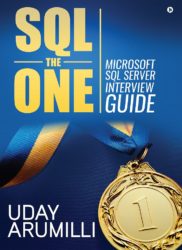Search for an Object in SQL Server

This article helps you in understanding how to Search for an object in SQL Server using T-SQL script. When we need to search for an object inside a database we can do that using sys.objects but when it comes to cross database search that needs a solution. There are different ways to search for an object in SQL Server:
- T-SQL Script: A native T-SQL script.
- Object Explorer Search: User required proper permissions to use this
- Red Gate SQL Search: It’s not always possible installing freeware on enterprise environments
- SSMS Tools Pack Add-in: An extra tool has to be added to SSMS
Why Instance level object search is required?
There are few cases where we search for objects across the instance.
- Cleanup: This is the common task that every DBA / Developer performs. We usually create backups for tables for temporary basis while performing a critical update or working on a change requests. But we forget to cleanup / remove those objects.
- Critical times: When there is an incident happened and you are working on resolution someone asked you details of an object path.
- Developer / DBA are new to environment: When you are new to the environment and you wanted to quickly know the object path.
Search for an object in SQL Server using T-SQL:
Now we are going to create a stored procedure that helps us to search for an object name in SQL Server instance level. Remember the same script you can remove procedure and use as a T-SQL batch script.
/***********************************************************************/ --ProcName: usp_ObjectSeek --Description: To search for an object in SQL Server instance level --@ObjName: Name of the object to be searched --@SearchType: Search Criteria; Default to equal -- equal: Entire object name should be macthed -- start: Object Name should starts with this name -- end: Object Name should end with this name -- contain: Object name should conatin this name /***********************************************************************/ CREATE PROCEDURE usp_ObjectSeek (@objName VARCHAR(200),@SearchType VARCHAR(20) = 'equal') AS BEGIN SET NOCOUNT ON; -- Declare sql to hold dynamic query DECLARE @SQL VARCHAR(4000); --Declare a table variable to hold the resultset DECLARE @ObjSeek TABLE (ID TINYINT IDENTITY, DBName VARCHAR(100) NOT NULL, Obj_Name VARCHAR(100) NOT NULL, Obj_Type VARCHAR(50) NOT NULL); -- Change the search predicate based on the input SELECT @SearchType = LOWER(@SearchType) SELECT @objName =CASE WHEN @SearchType = 'contain' then '%'+@objName+'%' WHEN @SearchType = 'start' then @objName+'%' WHEN @SearchType = 'end' then '%'+@objName WHEN @SearchType = 'equal' then @objName END; -- Create a dynamic query to seek for the given object -- "?" indicates the db name SET @SQL = 'SELECT ''?'' as DBName, Name as Obj_Name, type_desc as Obj_Type FROM [?].sys.objects WHERE name like'''+@ObjName+''''; -- Search all databases in the current instance -- Insert details into ObjSeek table Variable INSERT INTO @ObjSeek (DBName,Obj_Name,Obj_Type) EXEC sp_msforeachdb @SQL; -- Get the actual result set SELECT * FROM @ObjSeek; SET NOCOUNT OFF; END
Execution:
Now we will see how to execute this procedure to search for an object for different scenarios:
-- Retrive all objects named as "test" from all databases EXECUTE usp_ObjectSeek 'test','equal' -- Retrive all objects where name ends with "_bkp" from all databases EXECUTE usp_ObjectSeek '_bkp','end' -- Retrive all objects where name starts with "dump_" from all databases EXECUTE usp_ObjectSeek 'dump_','start' -- Retrive all objects where name contains the word "temp" from all databases EXECUTE usp_ObjectSeek 'temp','contain'
FAQ:
Q. Is this a case sensitive search?
Ans:
No! Object name is not case sensitive.
Q. Does this procedure require any special permission?
Ans:
No! User with read access on database can search the database for the given object.
Ex: A SQL Server Instance is having 12 databases.
User1 is having read access on 7 databases and no access on remaining 5 databases.
When he runs this procedure it searches only 7 databases.
















Superb Article!!
Thank you so much Jyoti.
Happy Reading
The Team SQL
http://udayarumilli.com/
very informative article . resolve my problem
Thanks!
Regards
The Team SQL
http://www.udayarumilli.com